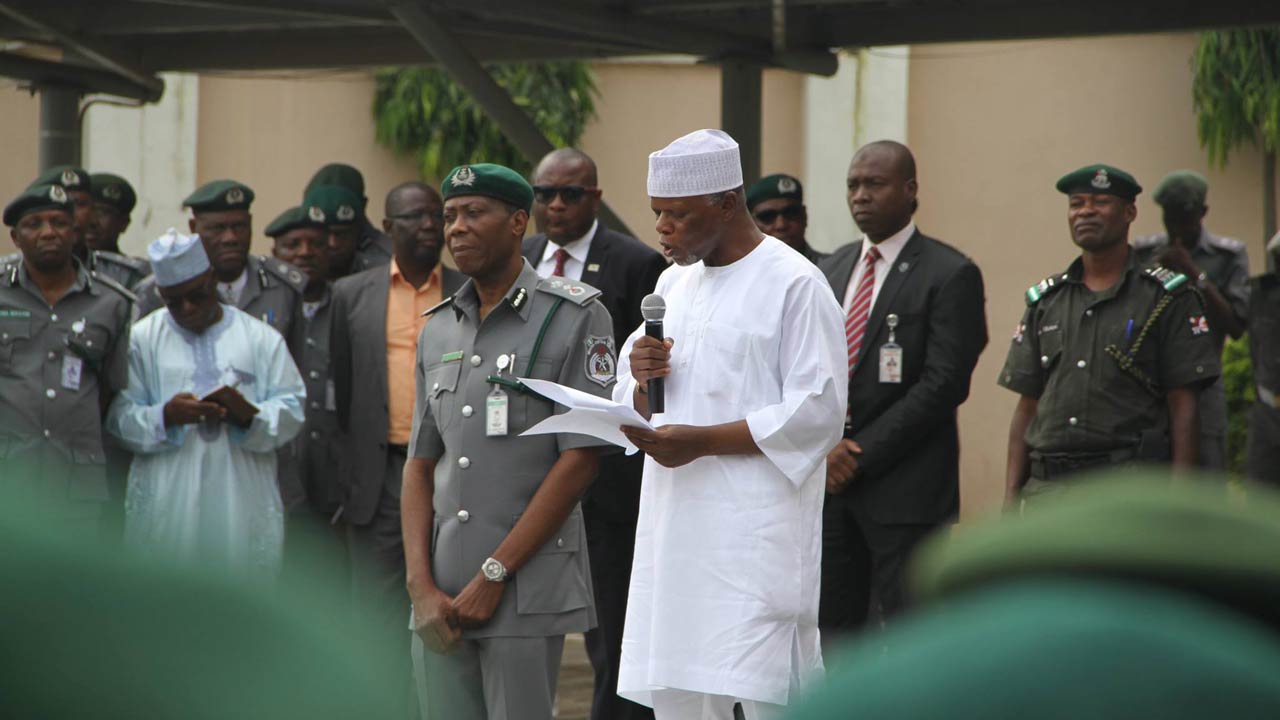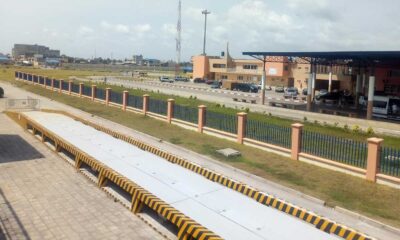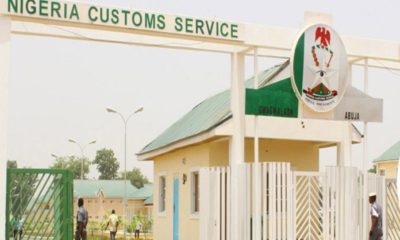- Customs Generate N65.5bn from Three Commands in Q1
The Ports and Terminal Multi-purpose Limited, Command, Lagos; Port Harcourt Area 11 Onne Command, and the Ogun Area Command of the Nigeria Customs Service generated a total of N65.5bn revenue in the first quarter of 2019.
The PTML generated N36.7bn; Onne Command generated N25.6bn while the Ogun Area Command generated N3.2bn from January to March.
Also, about 136,973,413.92 metric tonnes of non-oil goods worth N409bn were exported from the Onne Command within the period under review. Ogun Command made a total of 226 seizures with a Duty Paid Value of N439m while Onne Command recorded a total of nine seizures, with a DPV of N107m also within period under review.
PTML Customs Area Controller, Florence Dixon, attributed the volume of revenue collection to the increase in cargo throughput and strategic diligence on the part of officers and men of the service.
Dixon, who spoke through the Command Public Relations Officer, Mohammed Yakubu, said there was no option to compliance at PTML by all stakeholders.
Meanwhile, the Ogun State Area Command Controller, Michael Agbara, listed the seized items to include 83 units of vehicles, out of which 37 were fairly used, and 46 were used as means of conveyance of smuggled items. The seizures also include 12,720 of 50kg bags of foreign rice, Indian hemp, vegetable oil, motorcycles, clothing and foot wears, tyres, petrol and handbags.
Agbara said the command seized and handed over 1.8 tonnes of Indian Hemp to the Ogun State Command of National Drug Law Enforcement Agency, adding that three suspects arrested in connection with attacks on Customs operatives earlier in March 2019 at Papalanto and others who attacked the Command’s headquarters at Abeokuta were undergoing investigation.
Similarly, the Controller of Onne Command, Aliyu Saidu, said items seized by his command include nine containers comprising 57,300 pieces of machetes, vegetable oil, foreign soaps, clothing and parboiled foreign rice. He added that the machetes were imported without end-user certificates.
A statement signed by the Command Public Relations Officer, Ifeoma Ojekwu, quoted Saidu as saying the command’s overall successes were based on 100 per cent physical examination of goods and active intelligence gathering.
“Specifically, when relating the revenue collected and seizures to the operational strategies used, I am happy to inform you that the command focused mainly on intelligence-based risk profiling of our system with 100 per cent physical examination of cargo at the various terminals and sheds,” he said.
Saidu said all the seizures made by his command were propelled by various forms of infractions such as false declaration, concealment, wrong classification, import without end-user certificate and complete disregard for import and export guidelines; with intent to smuggle in illicit goods.

 Billionaire Watch3 weeks ago
Billionaire Watch3 weeks ago
 Startups4 weeks ago
Startups4 weeks ago
 News4 weeks ago
News4 weeks ago
 News4 weeks ago
News4 weeks ago
 Bitcoin4 weeks ago
Bitcoin4 weeks ago
 Naira4 weeks ago
Naira4 weeks ago
 Forex3 weeks ago
Forex3 weeks ago
 Treasury Bills4 weeks ago
Treasury Bills4 weeks ago





















